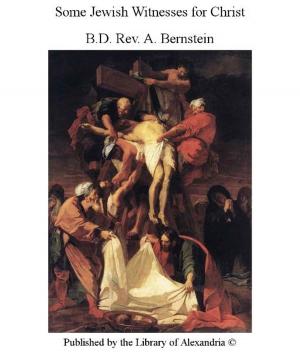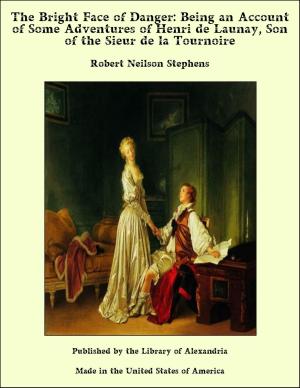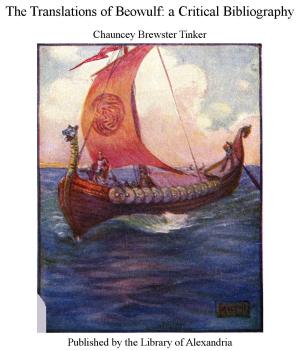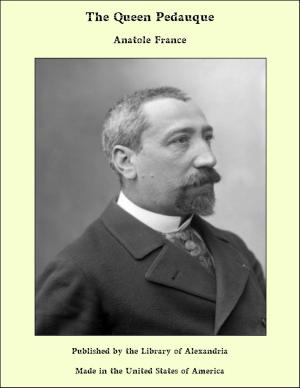| Author: | Stanley John Weyman | ISBN: | 9781465524928 |
| Publisher: | Library of Alexandria | Publication: | March 8, 2015 |
| Imprint: | Language: | English |
| Author: | Stanley John Weyman |
| ISBN: | 9781465524928 |
| Publisher: | Library of Alexandria |
| Publication: | March 8, 2015 |
| Imprint: | |
| Language: | English |
THE FAIR AT FÉCAMP. "I am Jehan de Bault, Seigneur of--I know not where, and Lord of seventeen lordships in the County of---I forget the name, of a most noble and puissant family, possessing the High Justice, the Middle, and the Low. In my veins runs the blood of Roland, and of my forefathers were three marshals of France. I stand here, the----" It was the eve of All Saints, and the famous autumn horse-fair was in progress at Fécamp--Fécamp on the Normandy coast, the town between the cliffs, which Boisrosé, in the year '93, snatched for the Great King by a feat of audacity unparalleled in war. This only by the way, however; and that a worthy deed may not die. For at the date of this fair of which we write, the last day of October, 1637, stout Captain Boisrosé, whom Sully made for his daring Lieutenant-General of the Ordnance, had long ceased to ruffle it; the Great King had lain in his grave a score of years or more; and though Sully, duke and peer and marshal, still lived, an aged, formal man, in his château of Villebon by Chartres, all France, crouching under the iron hand of the Cardinal, looked Other ways. The great snarled, biting at the hem of the red soutane. But that the mean and Jacques Bonhomme, the merchant and the trader, flourished under his rule, Fécamp was as good evidence this day as man could desire. Even old burghers who remembered Charles the Ninth, and the first glass windows ever seen in Fécamp outside the Abbey, could not say when the price of horses had been higher or the town more full. All day, and almost all night, the clatter of hoofs and babble of bargains filled the narrow streets; while hucksters' cries and drunkards' oaths, with all raucous sounds, went up to heaven like the smoke from a furnace. The Chariot d'Or and the Holy Fig, haunts of those who came to buy, fairly hummed with guests, with nobles of the province and gay sparks from Rouen, army contractors from the Rhine, and dealers from the south. As for the Dame Belle and the Green Man, houses that lower down the street had food and forage for those who came to sell, they strewed their yards a foot deep with straw, and saying to all alike, "Voilà, monsieur!" charged the full price of a bed. Beyond the streets it was the same. Strings of horses and ponies, with an army of grooms and chaunters, touts and cutpurses, camped on every piece of level ground, while the steeper slopes and hill-sides swarmed with troupes more picturesque, if less useful. For these were the pitches of the stilt-walkers and funambulists, the morris dancers and hobby-horses: in a word, of an innumerable company of quacks, jugglers, poor students, and pasteboard giants, come together for the delectation of the gaping Normans, and all under the sway and authority of the Chevalier du Guet, in whose honour two gibbets, each bearing a creaking corpse, rose on convenient situations overlooking the fair. For brawlers and minor sinners a pillory and a whipping-post stood handy by the landward gate, and from time to time, when a lusty vagrant or a handsome wench was dragged up for punishment, outvied in attraction all the professional shows
THE FAIR AT FÉCAMP. "I am Jehan de Bault, Seigneur of--I know not where, and Lord of seventeen lordships in the County of---I forget the name, of a most noble and puissant family, possessing the High Justice, the Middle, and the Low. In my veins runs the blood of Roland, and of my forefathers were three marshals of France. I stand here, the----" It was the eve of All Saints, and the famous autumn horse-fair was in progress at Fécamp--Fécamp on the Normandy coast, the town between the cliffs, which Boisrosé, in the year '93, snatched for the Great King by a feat of audacity unparalleled in war. This only by the way, however; and that a worthy deed may not die. For at the date of this fair of which we write, the last day of October, 1637, stout Captain Boisrosé, whom Sully made for his daring Lieutenant-General of the Ordnance, had long ceased to ruffle it; the Great King had lain in his grave a score of years or more; and though Sully, duke and peer and marshal, still lived, an aged, formal man, in his château of Villebon by Chartres, all France, crouching under the iron hand of the Cardinal, looked Other ways. The great snarled, biting at the hem of the red soutane. But that the mean and Jacques Bonhomme, the merchant and the trader, flourished under his rule, Fécamp was as good evidence this day as man could desire. Even old burghers who remembered Charles the Ninth, and the first glass windows ever seen in Fécamp outside the Abbey, could not say when the price of horses had been higher or the town more full. All day, and almost all night, the clatter of hoofs and babble of bargains filled the narrow streets; while hucksters' cries and drunkards' oaths, with all raucous sounds, went up to heaven like the smoke from a furnace. The Chariot d'Or and the Holy Fig, haunts of those who came to buy, fairly hummed with guests, with nobles of the province and gay sparks from Rouen, army contractors from the Rhine, and dealers from the south. As for the Dame Belle and the Green Man, houses that lower down the street had food and forage for those who came to sell, they strewed their yards a foot deep with straw, and saying to all alike, "Voilà, monsieur!" charged the full price of a bed. Beyond the streets it was the same. Strings of horses and ponies, with an army of grooms and chaunters, touts and cutpurses, camped on every piece of level ground, while the steeper slopes and hill-sides swarmed with troupes more picturesque, if less useful. For these were the pitches of the stilt-walkers and funambulists, the morris dancers and hobby-horses: in a word, of an innumerable company of quacks, jugglers, poor students, and pasteboard giants, come together for the delectation of the gaping Normans, and all under the sway and authority of the Chevalier du Guet, in whose honour two gibbets, each bearing a creaking corpse, rose on convenient situations overlooking the fair. For brawlers and minor sinners a pillory and a whipping-post stood handy by the landward gate, and from time to time, when a lusty vagrant or a handsome wench was dragged up for punishment, outvied in attraction all the professional shows















